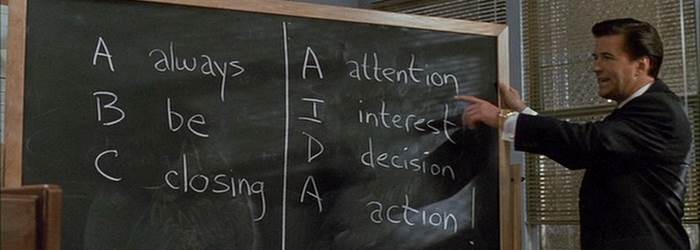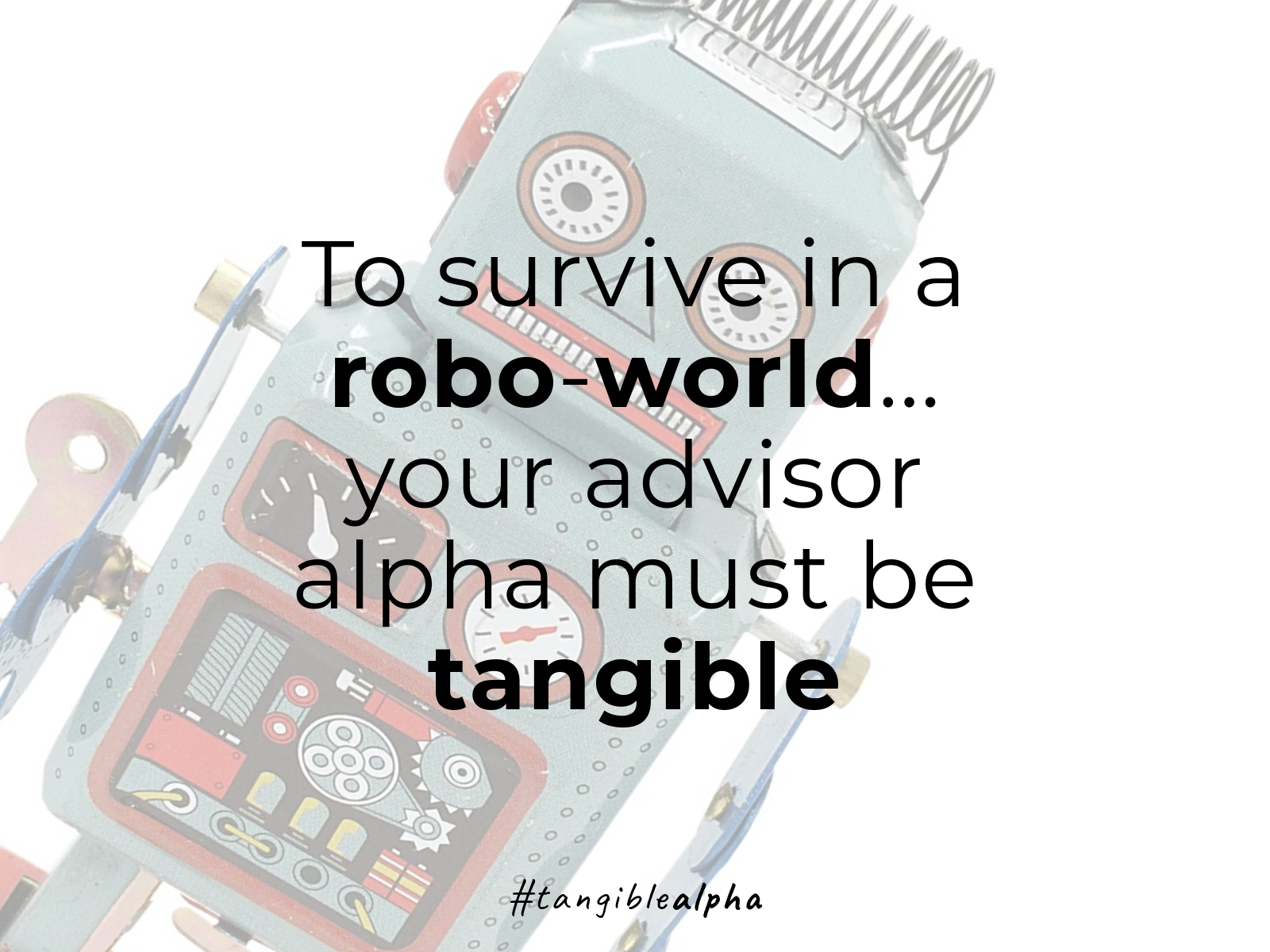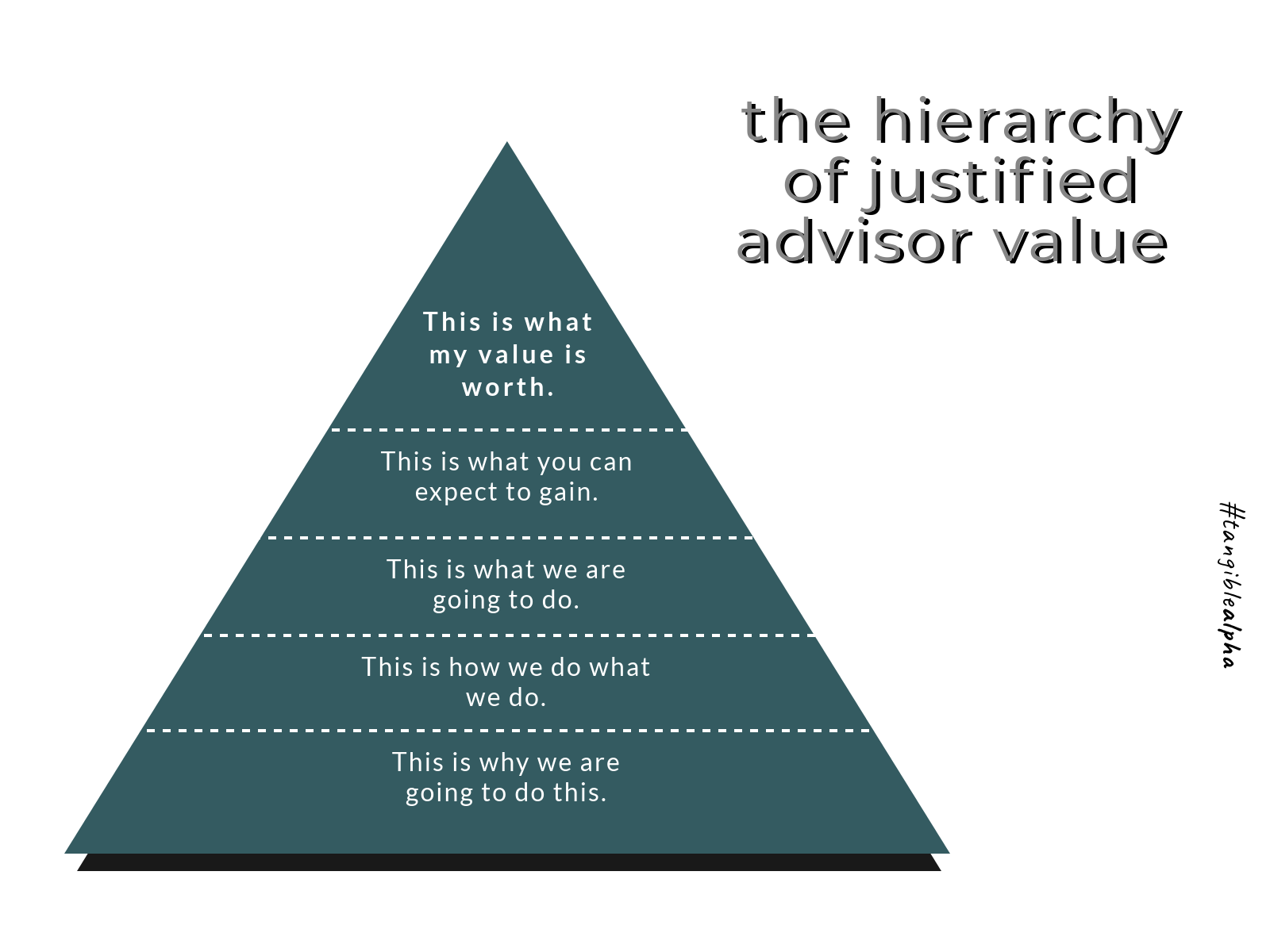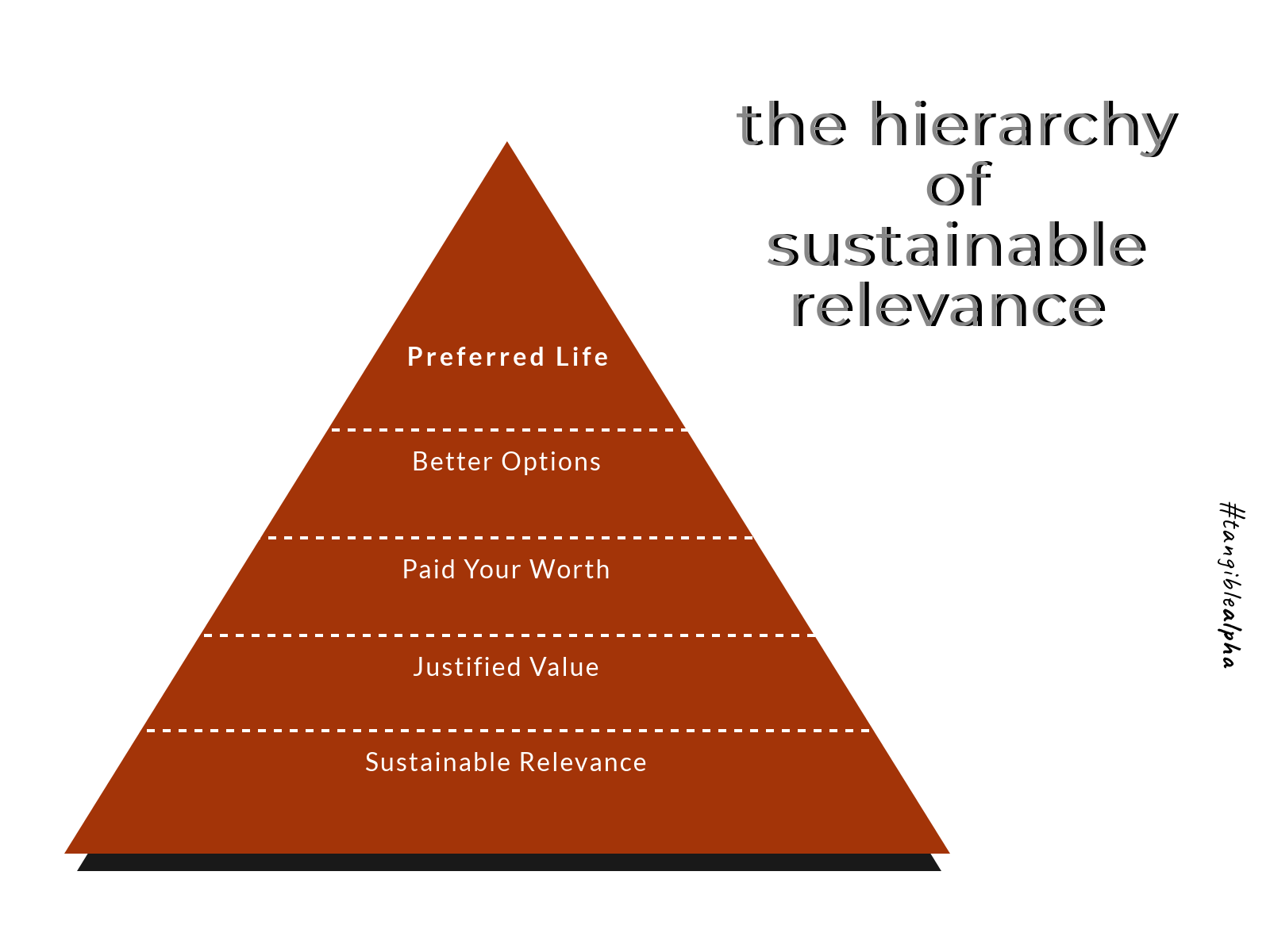Adapt and Survive
It’s very important that you are able to challenge yourself to think differently on a daily basis so that you can remain adaptable to the ever-changing landscape of financial services. It’s equally as important to be able to challenge yourself in a 100% confidential platform. No one is looking over your shoulder, no one is judging you. This is the opportunity for you to take complete control of your business. Build on purpose at TangibleAlpha.com It truly is nobody’s business but yours.
Curated Article
Last week in Newport, Rhode Island I was reminded of what a healthy and robust economy we’re currently living in.
On a quiet Tuesday night, the restaurant we dined at, The Mooring, was anything but quiet. There wasn’t an empty seat in the place. We saw tables turned over multiple times and a constant lineup of eager diners with no reservations anxiously hoping a spot would open for them.
Nearly every great restaurant was experiencing the same. In fact, if a business didn’t have this type of demand, we could make an argument they were likely doing something wrong. As one person at my meeting said, “It’s almost hard to NOT to succeed in this market.”
That restaurant reminded me of one of the “classic” questions from the marketing world: If I were to ask you, what’s the single most valuable competitive advantage a company can have, what would you say?
Some would answer by saying money, or proprietary technology, or a monopoly.
The late Gary Halbert, a famous, contrarian direct response copywriter often wrote that the single most important competitive advantage any business could have was a “starving crowd.”
Halbert argued that the only competitive advantage you needed was an audience, hungry and salivating for your products and services. These restaurants were getting it right.
I love Gary and have often talked about him in my Tidbits, podcast, and while working with clients.
But in this case, Gary was wrong.
Sure, a metaphorically hungry, starving crowd is important, and many businesses have done a fantastic job cultivating that type of audience, but what about the rest of the companies out there?
What about companies facing industry-wide disruption from the Amazons of the world?
My friend and colleague, Colleen Francis, who consults for some of the biggest firms in the Fortune 100 suggested the single biggest threat she sees all clients facing, in nearly every sector, is literally Amazon.
She calls the phenomenon the “Amazonification of Sales.” Colleen says that clients in every sector and every industry now expect the Amazon experience. They’re going online and price shopping. They expect fast turnaround times and speedy delivery. And they expect it, regardless of what you’re selling – even if you’re selling a 2 billion dollar piece of heavy manufacturing equipment, or making a multi-million dollar licensing sale.
I see this outside the Fortune 100 and in my privately-held midmarket clients all the time. They’re all facing customers and clients with exceedingly increased expectations almost solely because of their experiences with Amazon.
And this is why Gary was wrong. The single most important competitive advantage a business has isn’t a starving crowd.
It’s the ability and willingness to change.
It’s getting harder and harder to win with “what got you here.” The strategies and successes of your past can, if you’re not careful, create your downfall. (Consider Blockbuster passing up on buying Netflix).
As one of my colleagues said last week which I thought was brilliant, “If it can happen to #generalelectric, it can happen to you. Nobody is immune.”
So here’s a question for you to consider.
Are you experimenting with enough change?
None of us have even a smidgen of the resources available to Amazon, but it doesn’t mean we can’t be changing at a similar speed.
For example, Amazon, Google, Apple and others are famously known in business circles for innovating through small teams and constant micro-experiments running all the time.
What experiments are you running in your business?
What processes are you engaged in changing or improving?
What can you change about your sales process, your customer experience, your decision-making process, etc?
There’s enormous pressure in the business world to optimize for results today. But the magic lies in optimizing for today while innovating for tomorrow. Excellent management can balance those objectives carefully.
Your Challenge For The Week: Devise a low-risk experiment you can run for a short time and share it with me.
Here are a few examples.
If you’re a VP of Sales, consider a new step or reducing steps in your sales process.
If you’re in charge of #customerservice, devise a new way of handling complaints, criticism, and feedback.
If you’re in charge of #customerexperience, consider testing something new as part of the customer’s post-purchase experience, or try testing a new way of caring for customers in a retail environment.
If you often launch new products into the market, try pre-selling those products before launching them.
The key is to make your experiments low-risk, and low-stakes, but enough to help you change, pivot, adapt, remain relevant, and thrive well into the future.
As a bonus challenge: Ask all your subordinates (VP Sales, CMO, CFO, etc.) to make a list of all the processes, tasks, and repetitive things the company does on a regular basis. If you asked why they’re done in a certain way, and the response is, “Well, that’s the way we’ve always done it….”
Start there.
Advisor Benchmarks
Originally Published 12.27.2016
Building a digital footprint is critical in the era of collaboration.
Everything that you publish, whether it be in the form of comments as in this article, or in the form of blog posts as seen here on this blog post… or a combination of the two, curated to bring meaning to my beliefs and opinions in a tangible fashion. This blog post is a working example of HOW to leverage your digital footprint by exuding your authentic value 24/7. Your ideal audience will find you so you had better be publishing with a purpose.
The Future for Advisors is about proving value. 24/7.
When Advisors allow any other entity besides themselves to define their authentic value they diminish the chances of survival and hinder their plans to thrive in the digital age. You mustn’t allow your plans to thrive in the digital age be undermined by anyone… much less yourself. Avoid self-sabotage by reading on…
The advisor in the future must look beyond industry standards and minimum antiquated regulation to demonstrate in a tangible fashion why anyone should do business with them Pertaining specifically to this article, (Original Article from RIABiz.com) the advisor who relies on the industry to demonstrate his or her value through a benchmark is more likely to be replaced by the industry. Advisor autonomy goes beyond the realm of value props.. In order to thrive in the digital age of transparency advisors must own a “client-centered purpose.” Technology and transparency will weed out the ne’er do wells. It’s already happening without (and in spite of) regulation. Clients are becoming more empowered through transparency and technology , which is a beautiful thing. Advisors must also leverage the same transparency and technology to empower themselves.
You can’t police advisors into stewardship roles.
Any form of industry standard benchmark weakens the advisor… it does nothing to empower the perception of value, which is under the complete control of the advisor… more specifically, the advisor who owns a client-centered purpose. – Most advisors are good.-(Especially those advisors who subscribe to RIA Biz.) More industry drafted oversight is only adding to the digital noise. Advisors must become empowered through autonomy to thrive in the new collaborative world of 24/7 advice. My opinions about the facts in this article are backed by my conviction about HOW advisors can and should become empowered. Advisors must be afforded the opportunity to exude their authentic value through – ownership – of the perception of their value. Acquiescing to antiquated industry standards that limit the ability of the advisor to own the perception of his or her value, in my opinion, is a catastrophic mistake that can and should be avoided. Now, more than ever, investors are searching for a trusted source of wisdom. Advisors who are empowered through autonomy will be more likely to exude that wisdom than those advisors who agree to become suppressed by industry created benchmarks. ((BTW, this is a great article that shines a much needed light on the difference b/t portfolio alpha and advisor alpha. Keep ‘em coming.)) This article is an important component in moving the conversations away from the “what” that most RIABiz readers are already well aware of.
The comments after the article (found in the link above) are nearly 2 years old… and there they sit… Conveying my unique beliefs and opinions about this business.
If advisors rely on the industry to define their value will they be replaced?
Who do you trust?
Who should your clients trust?
Better conversations start with questions that lead to better definitions which lead to better solutions that can truly make a difference in the lives of trusted clients…
By posing these questions I am reminding my current ideal clients of my authentic value while exuding my alpha to a new audience who is looking for a trusted source of wisdom to help them see hear and feel about their business in a different dimension. The perception of my value is entirely up to me. There has never been a greater opportunity for advisors to take advantage of technology. By ignoring this statement you risk extinction… discover as much as you can as soon as you can.
#TangibleAlpha
Always available when the time is right for you.
The Twittersphere
Twitter for Advisors
Your ideal audience is looking for solutions to their problems 24/7.
It is absolutely critical that they are able to find you and your brand across a multitude of mediums in the digital world. They must be able to access your tangible value 24/7 from their device of choice. Most likely, this will be the smartphone.
Twitter is ideal for staying relevant if you use it with wisdom…
Your purpose, values, principles, beliefs, opinions, experiences, expertise, promises, rules, philosophy, and distinctive questions must all be accessible to your ideal clients and prospects.
How Do I Tweet With Wisdom?
Discover HowThree Reasons Sales Funnels Don’t Work Anymore
Legacy sales practices are quickly becoming obsolete for financial advisors.
The three main reasons sales funnels don’t work anymore:
-
Time
-
Product Focus
-
Transparency
Time

In a robo-world there simply isn’t enough time to compete in the arena of product sales for shrinking commissions.
Product Focus
You are not selling products in a vacuum behind a curtain of opacity surrounded by smoke and mirrors. The focus of the modern advisor must be on the services that he or she provides that are unique to the individual and relevant to his or her ideal audience. People can buy products from their smart phones Clients don’t need an advisor for that. They don’t need you to “sell” them anything anymore. What clients need is a trusted source of wisdom… which is what you are. Obviously, a trusted source of wisdom would never use anything as shady as a product sales funnel to convey their client-centered focus to their ideal audience. Because that would be impossible. Which leads us to why that would be impossible to pull off in the modern era of financial services… transparency… reason number three.
Transparency
Do you think you can convey that message?
In which you are using obvious sales tactics?
By using sales gimmicks from the late 1990’s?
Gimmicks to fill your sales funnel with leads?
The same transparency that is killing the sales funnel and traditional lead generation can make you irreplaceable if you understand how to leverage it for the good of your clients and for yourself.
So What Can You Do?
Be proactive… be responsible… be yourself.
Right now we live in the greatest era of opportunity for financial advisors. WHY? Because… Your ideal audience is seeking a trusted source of wisdom… and that is YOU.
Your Future Awaits
Build My FilterAre You A Trusted Source of Wisdom?
Content Curation
- amplify their value
- control how that value is perceived
- maximize their relevance
Curated Article
As an information scientist, one of the most depressing aspects of modern social media is the way in which it is reshaping our global society to focus on the what, rather than the why. From the sciences to the humanities to the arts, the underpinning of the scholarly knowledge that advances our collective society is the understanding of why the world is the way it is. Documenting the “what,” the state of the world, is a necessary and important component of that process, but without the synthesis of those observations into the “why” that describes how they came to be and explains their outcome, we can never truly understand our world. This raises the question of how to restore the “why” in a social media world that teaches us that all that matters is the “what.”
The social media revolution has turned everyone with a smartphone into a realtime embedded reporter, live chronicling their own lives and events they experience and commenting on events happening elsewhere across the world. When journalists and tech experts start seeing a strange survey from Facebook pop up in their newsfeed, their first reaction is not to turn to the company to learn more about the feature, to examine it through the lens of proper survey design, to consider the implications of its design in terms of limiting the insights it can provide or to ruminate deeply on what it means for Facebook to be asking such a question and its societal implications. Instead, they all respectively race to be the first to plant their flag in the Twitterverse of having been among the first wave of people to mention it. Speed matters over comprehension.
The realtime conversational nature of Twitter in particular is often touted as offering a global scale collective collaboratory that extends the realtime nature of environments like Slack to the entire planet, allowing adhoc teams to form across geographic, disciplinary and cultural boundaries. The reality couldn’t be further from the truth. Instead of the world’s citizens working together towards a greater good, cataloging all known information about an emerging event and trying to synthesize a basic understanding of its scope, scale and characteristics and bringing in experts from related fields to comment on the potential meaning of each element, the online conversation simply devolves into a bunch of users saying they saw it too and competing for the snarkiest or most meme-worthy response in their never-ending search for viral fame.
Knowing that Facebook is running a new opinion poll might be of interest to media strategists, investment analysts and government regulators, but just knowing there is an opinion poll is of little use without the why, the understanding of what Facebook intends to do with the collected information.
Similarly, in the physical world it can be of great use to first responders to get a realtime alert from a surge of tweets in a particular city block reporting a giant plume of smoke emerging from the roof of a building. The problem is that without knowing the why, it is impossible to know if that “smoke” is simply steam from a vent, humidity from an air conditioning plant, ordinary pressure exhaust from a liquid nitrogen storage system, routine maintenance sandblasting or simply a rooftop party featuring a fog machine. Focusing on the “what” can mean critical resources diverted for a false alarm that makes them unavailable for a real emergency elsewhere in town.
At least one can argue that having increased situational awareness can be of benefit to first responders in alerting them to situations they may wish to examine further. The same can’t be said, however, for the deeper implications of teaching an entire generation of people that relentless focus on speed over comprehension is what affords one success in life.
Perhaps most remarkable is the degree to which academia has embraced social media to discuss issues ranging from developments in their own fields to events and topics completely astray from their own expertise. In contrast to the general public, which might be forgiven for focusing on simplistic reporting of what they see in front of them, the scholarly and scientific worlds emphasize the search for understanding, that the why matters far more than the what.
One might assume therefore that academics would bring that search for understanding with them to the social sphere, lending a critical perspective to raging debates and seeking to explain why it is that everyone else is seeing what they see. Instead, much of the academic discourse on social media is little more esteemed that the rest of the billions of ordinary users they engage with.
Rather than the measured informed discourse and heavily cited and referenced exposition that would be found in an academic journal or the Q&A section of a conference, these same academics that ordinarily pepper their speech with “isms” and speak as though they’ve memorized Roget’s Thesaurus from front to back will suddenly devolve to one-line responses and petty flame wars where the most meme-worthy response wins and adherence to scholarly norms of debate, including sticking to factual statements and citing the source of all claims, goes right out the window.
Putting this all together, social media’s fixation on realtime updates and the unfortunate fact that it is the most entertaining comment rather than the most enlightening that tends to go viral and reward its author with fame in today’s world, means we are teaching an entire generation to focus on information in isolation, rather than spend the time to properly situate it in context. Indeed, this is one of the driving forces behind the ease with which false and misleading information spreads on social platforms. When even the academic world discards millennia of tradition that evolved to maintain the scholarly and scientific world’s focus on the why over the what, we run the risk that social media will ultimately permanently refocus humanity to forget the past, ignore the future and live in a world in which information no longer has any context and where all that matters is what we see before us at this moment, not the understanding of why it is that the world is as we see it. In short, for the thousands of years of human history that we have sought to understand our world, we stand today amongst the unimaginable riches of having all of human knowledge at our fingertips and a quarter of the world’s population just a mouse click away, but rather than harness this brave new world to reimagine how we understand ourselves, we have instead taught an entire generation that speed matters more than explanation, entertainment more than enlightenment. From the Age of Enlightenment to the Age of Entertainment.
Based in Washington, DC, I founded my first internet startup the year after the Mosaic web browser debuted, while still in eighth grade, and have spent the last 20 years…
Kalev Leetaru
Are You A Trusted Source of Wisdom?
Advisors must be more than social influencers to survive in a robo-world.
In a robo-world advisors must become more than simply social influencers. The seriousness of the undertaking of your calling must be made tangible within your own unique CliqPage.
Now more than ever your ideal audience is in search of a trusted source of wisdom.
This isn’t entertainment and it’s more than just enlightenment… this is about the quality of life, the dreams, the goals, and the aspirations of your ideal audience.
This is a serious business and the context of your meaningful digital engagement must reflect exactly how serious this business is.
The scholarly implications and the meanings in academia referred to in this article will all sort themselves out… my genuine concern is for advisors and their clients… my concern is for you… it is entirely up to you to create the meaningful context that will guide both you and your clients through the digital noise that grows exponentially in today’s robo-world.
You must be able to walk the talk.
You must promise your behavior.
Your clients must promise their behavior to establish a trusted collaborative relationship.
You must frame the relationship with your rules.
Your filters must be designed by you topically to lead to the value you can control the most.
Discover your why and make your what relevant.





